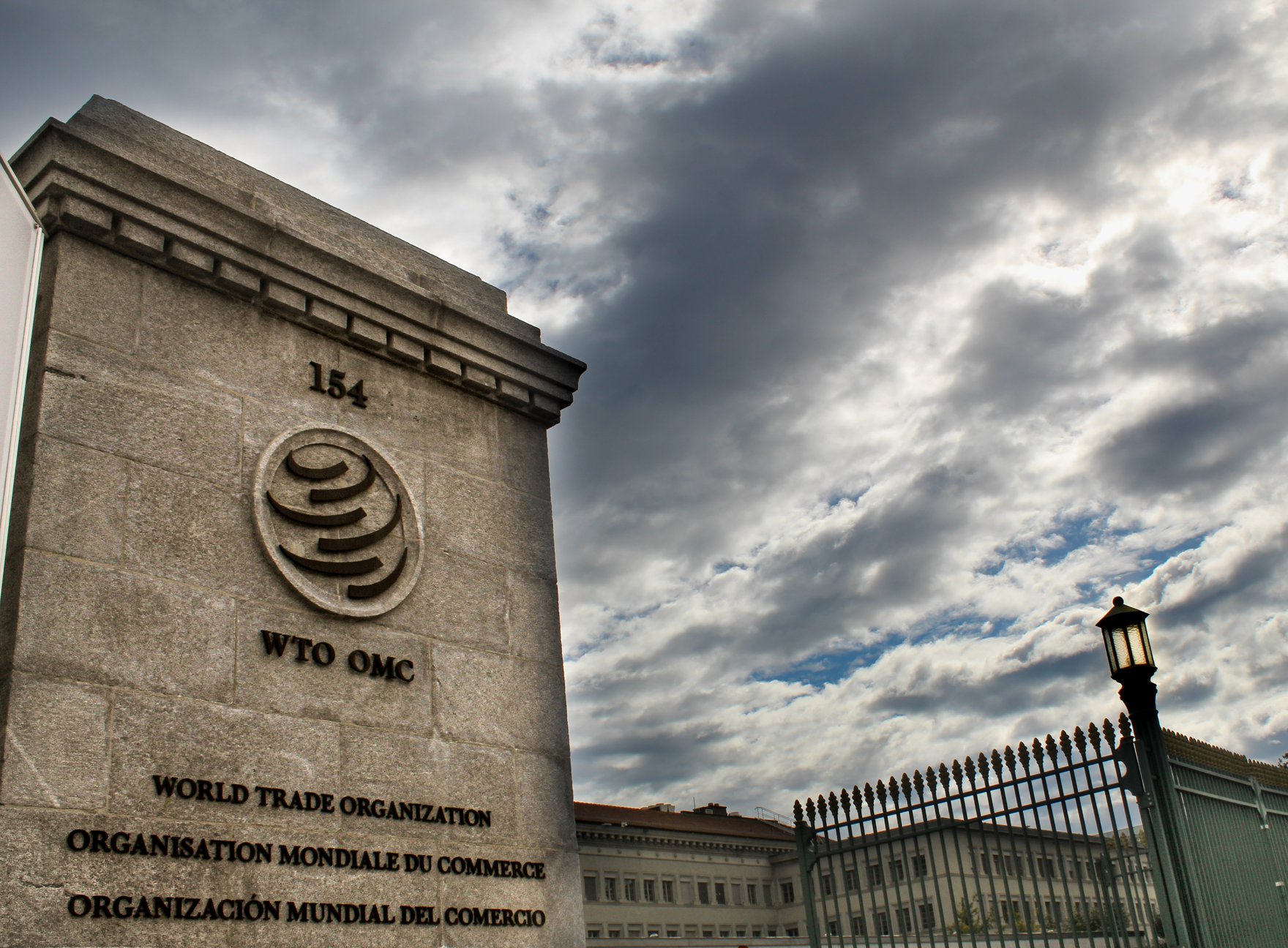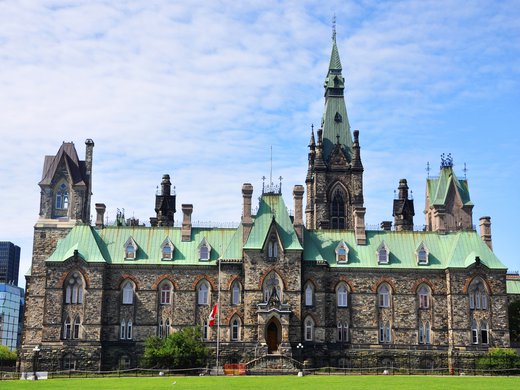On March 12, 2021, Robert Fay, managing director of digital economy at CIGI, addressed the Standing Committee on International Trade regarding the reform of the World Trade Organization. The following is a lightly edited version of his remarks.
Good afternoon and thank you, Madame Chair and honourable members, for the opportunity to present the views of the Centre for International Governance Innovation (CIGI) on World Trade Organization (WTO) reform.
The WTO faces many challenges. Indeed, it is experiencing a crisis of legitimacy in each of its three core functions — negotiation, dispute settlement and transparency.
More generally, the WTO finds itself struggling to respond effectively to the challenges of rapid economic, political, social and technological changes.
Multilateralism and rules-based trade cooperation are critical for Canada’s prosperity and relations with the world. As a middle power with a trade-dependent economy, Canada has both the incentive and the capacity to contribute enlightened ideas and advance novel reform initiatives to the WTO.
And indeed Canada has done so, with the creation and leadership of the Ottawa group to guide WTO reform efforts.
I will first provide specific reform ideas within each of the WTO’s three core functions. I will then turn to areas where trade rules need to be modernized.
More detail is provided in the background brief that we had submitted, and in the CIGI WTO reform essay series that can be found on the CIGI website.
Negotiation
Turning first to the WTO negotiation role: the WTO today deals with negotiations on a wide range of issues.
Indeed, the trade governance agenda is almost entirely a “trade and …” agenda with the “and” list daunting. It includes labour, gender, Indigenous peoples, climate change and the environment, data, digital issues, e-commerce, human rights, development, and intellectual property.
It is hard to visualize the WTO dealing with these issues in their entirety, much less adjudicating disputes around them.
CIGI suggests that member states reinvent the WTO by abandoning the effort to manage so many “behind-the-border” issues that cover disparate elements of economic and social policy.
The “single undertaking” approach, where all manner of topics were pooled to make broad-based progress while allowing for trade-offs between them, should be ended.
Nevertheless, the WTO must continue to monitor these diverse areas. Indeed, all WTO member countries could be mandated and provided incentives to report trade impact assessments on these “and” issues, to develop a better database for measuring the distributive consequences of trade measures.
The WTO must also place a greater focus on facilitating negotiations and increasing barrier-free trade.
Although multilateralism is best, in current circumstances a plurilateral approach is more workable, where it can help to build consensus among like-minded countries. An example of a plurilateral approach is the agreement of Canada, Chile and New Zealand on the issue of trade and Indigenous peoples.
The WTO can also work better with other international organizations, other stakeholders, and create expert groups to develop consensus on technical issues.
Bringing in the Group of Twenty (G20) might be useful in helping to choose among the options and setting a realistic course for WTO modernization. The G20 could also be used to achieve consensus and reach compromise on key issues over which the WTO is negotiating and help to develop a new program of work for the WTO.
Dispute Settlement
Turning next to the dispute settlement system, which has understandably attracted much attention.
The impasse over the Appellate Body (AB) threatens the whole system and distracts from discussion of other improvements that would make the dispute settlement system more inclusive and effective for many members.
In fact, for many WTO members, the WTO functions well.
The roots of the dispute settlement system problem stem from the relationship between WTO panels that are the first step in dispute resolution and the next stage: the AB.
The standard for appellate body review should be reshaped toward a more deferential one, in which the reasoning and findings of panels are respected when they are of a bilateral nature, less involving third-party interests, and those relating to technical matters.
While there is hope that the AB issue may be resolved with the appointment of a new DG [director general], to cope with the absence of a functioning AB there are other solutions. For example, Canada, along with the European Union and other countries, have agreed to the multi-party interim appeal arbitration arrangement. In addition, members could follow “no appeal” agreements and use dispute settlement mechanisms in other trade agreements.
WTO Monitoring Function
And now to the third core function, of monitoring.
Effective trade cooperation depends upon information sharing of national measures that might affect trade. The current paralysis in the WTO is caused in part by insufficient information on which to pursue informed negotiations and deliberations.
Government notifications remain the most important source of information, but many governments face capacity challenges in complying with these requirements.
Notifications can be improved by ensuring that information requirements are fit for purpose and by providing support for capacity building of governments to gather and share information. The Secretariat could also be tasked to compile information and ensure its validity.
The current paralysis in the WTO is caused in part by insufficient information on which to pursue informed negotiations and deliberations.
China presents a special challenge with its subsidies notifications. But it could be encouraged to centralize notifications, make them in the original language and have other members “counter-notify” China’s measures from their own sources.
WTO trade policy reviews could be improved by making their timing more flexible, their content more targeted and detailed, and their discussions more probing.
Let me now finish with three areas where trade rules need updating.
Trade Rule Modernization
1. Development and Trade
Addressing development issues will be important to successful WTO reform, including ways to provide flexibility in the rules for developing countries that is commensurate with their level of development, and in building their capacity to take on new commitments.
There is a need to encourage efforts to find solutions-oriented approaches to the controversial issue of developing country status and eligibility for special and differential treatment.
2. Digital Trade
The digital transformation and the data-driven economy call into question numerous aspects of the WTO system.
Digital trade goes well beyond e-commerce. It includes cross-border data flows, with implications for data and AI governance, competition, privacy, intellectual property and other important areas.
Much of the technical regulation in these areas must be developed through parallel processes outside the WTO and then fed into WTO deliberations.
We also must be wary of the use of regional trade agreements — RTAs — that can act as stepping stones into other policy spaces and become a multilateral standard.
More generally, the WTO should not be the organization that determines the division of rents in the intangibles economy.
I would refer committee members to my remarks to this committee on the subject of CUSMA [the Canada-United States-Mexico Agreement] in February 2020.
3. Trade-Related Aspects of Intellectual Property Rights (TRIPS)
During decades of negotiation, all parties have recognized that the world trade system could not function without integrating intellectual property.
The advent of artificial intelligence and explosion of cross-border data flows changes the economics of innovation and the nature of trade and require a rethinking of TRIPS. This could be done by the World Intellectual Property Organization and other international bodies that could then feed into their implications for trade by the WTO.
In conclusion, there are many strategic choices awaiting the WTO.
At the same time, it is important to keep in mind that the WTO’s enduring strength is as a forum of compromise, where consensus results are not always economically or politically optimal.
Thank you for your attention and I would be pleased to answer any questions that you may have.




